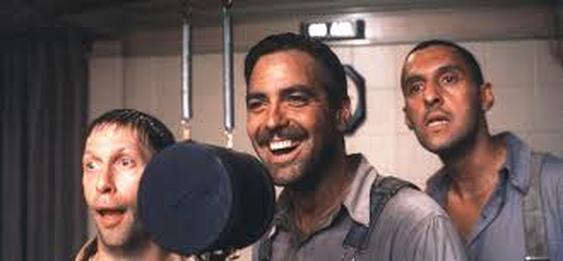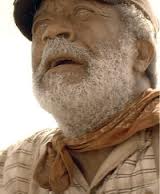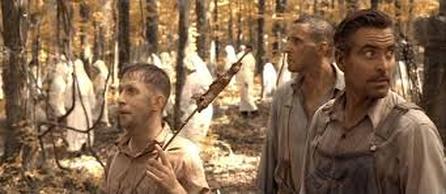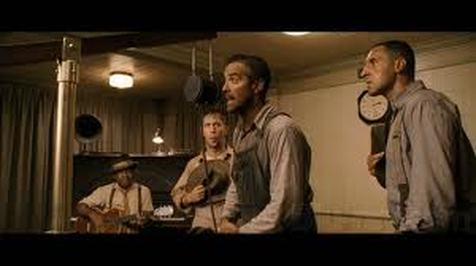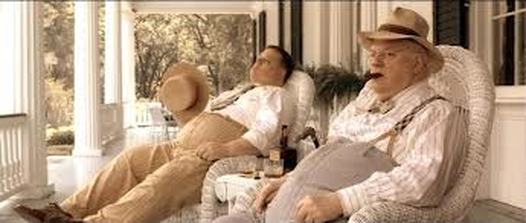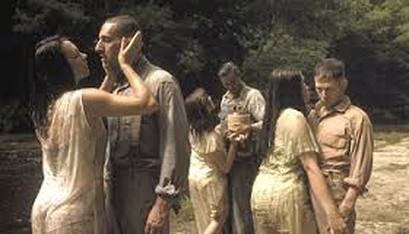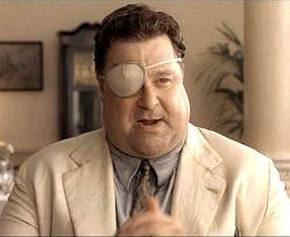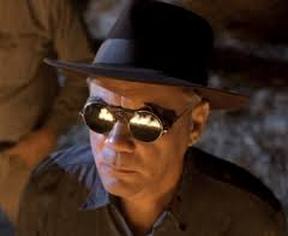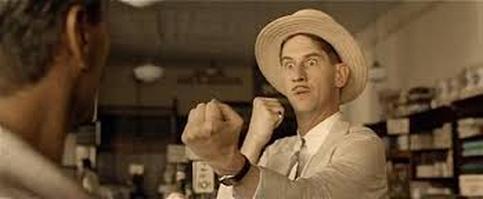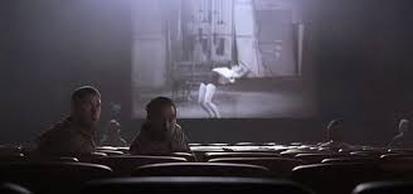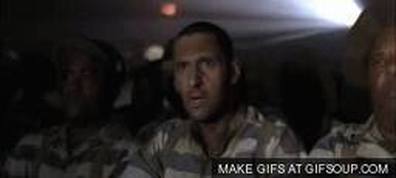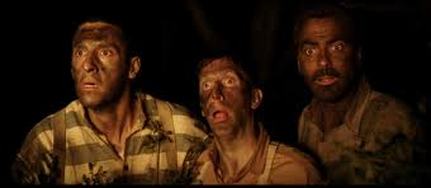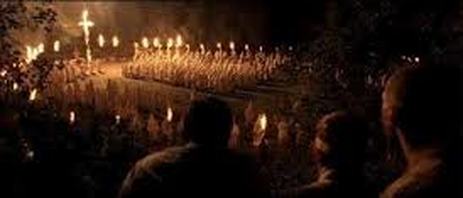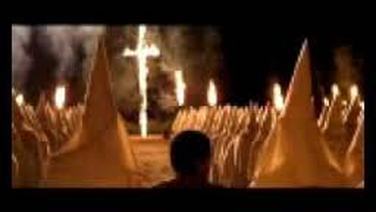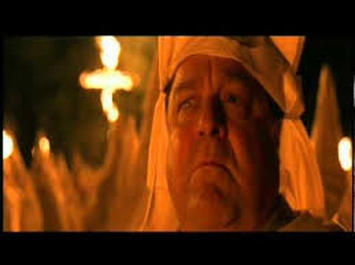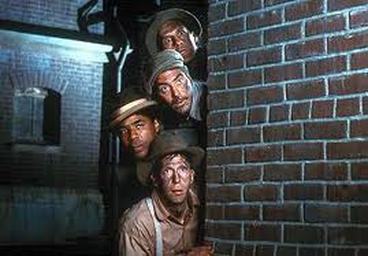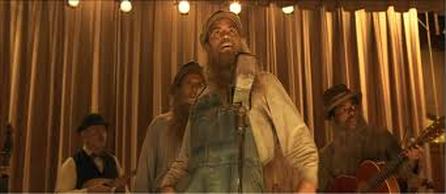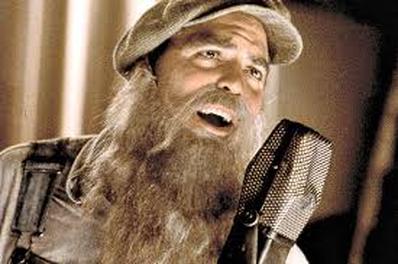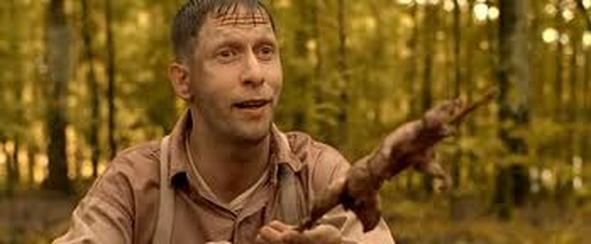
 In this episode of the Coastal Noise Podcast we're all about stand-up comedy. We talk crafting stories and jokes, stage presence, styles, and first time experiences. We discuss who think our the top dogs in comedy show biz and what elements make a great comedian. Louie C.K., Joe Rogan, Joey Diaz, Doug Benson, Ron White, Mitch Hedberg, Will Ferrel and Gilbert Gottfried are a few of the people we talk about. Daniel tells us about his recent trip to Hattiesburg to meet the folks of the Hub City Comedy organization and do a set at the Keg and Barrel. We all plan to go along for the next trip, so stop by have some fun with us. We riff on the new Kindle Fire "Mayday" button a bit and mention the new Dumb and Dumber To movie. After the show, we go down to the Government Street Grocery to do some stand-up of our own.
1 Comment
 In this episode of the Coastal Noise Podcast Doug gives us his thoughts on Tito's from Austin Texas. We talk about Houston's lousy traffic followed by a little bit of BMX and snowboarding. One of the big stories comes from ABC's 20/20 special on a father who recruited his son and daughter to rob banks. The story follows the dad who goes down hill with drugs and money problems and then conveniences his 20 year old son and 18 year old daughter to take part in a series of heists. I tell everyone how the man planned the robberies, how they got caught, and what happened afterwards. Revisiting previous themes from the last podcast, we talk about the Paleo Diet, what foods are safe and unsafe, grass-fed meats, fruit moderation, and a couple of our own experiences, as well as personal experiments in our eating regimens. Doug talks about new government policies that are being pitched around in regards to antibacterial products such as hand soaps, dishwasher liquids, and feeds for animals. Chris Gillespie, studying film in Arizona, drops-in and shifts the conversation to Bond movies, talking about how the older films contrast the latest installments in the franchise, with a greater since of misogynous lead character actions. We dwell on Bond topics for a while before moving to how movies are rated. What makes the difference between an R rated film and an NC-17? We also talk movies like Fargo, 12 Years A Slave, Eyes Wide Shut, This Film Is Not Yet Rated, Super Size Me, Super High Me, among others. Chris also mentions a new podcast by Doug Benson. Here is the latest episode featuring Joey "Coco" Diaz. We talk a little more about this podcast and others in the next episode with Ryan Vanskiver, Lyle Stephens, and Daniel Kavanagh where we talk at length about stand-up comedy. When I first watched "O Brother Where Art Thou?", I was probably about 12 years old. Back then, I didn't know what The Odyssey was, I didn't understand the true comedic value of the film, and, at such a young age, I probably didn't know much of anything in life that qualifies one to pass a critical evaluation on any kind of art form. But I did know, when the credits rolled, that the movie I had just seen was destined to be one of the top picks of my life. Over ten years later, it's still going strong with the position it holds with me. I remember asking for "O Brother" for my birthday or Christmas, one or the other, and of course received it, as my parents could obviously note my infatuation with it. When it did come into my possession on a VHS tape, I sat down to watch the film EVERYDAY for the next week or so. It's impression upon me was that great. I've come close to similar viewing intensities with movies like "The Matrix" (which is probably my #2 spot and deserving of its own article) and perhaps "Jaws" which is one I remember my brother watching several days in a week at one point in his life, but nothing like "O Brother". It seems only fitting that years later I regard the Coen Brothers as writers, producers, directors and, generally a knock out creative team, who ranks among the greatest of this generation. If you've been living under a rock and don't know what I'm talking about, see The Big Lebowski, No Country For Old Men (also at the top of my list), Raising Arizona, or Burn After Reading, to name a few. There are a number of reasons why I regard this piece of work as brilliant, despite some few minor plot holes that don't add up. I think the biggest draw for me was the music. Like a movie from the mind of Quinton Tarantino, "O Brother" was designed around the soundtrack, and it shows. Years before I picked up a guitar, the music of "O Brother" connected me to the blues before I even knew what the blues were. The gospel, folk and bluegrass aspects where also elements that I took note of, as well as the powerful dirges used throughout. The connection the film gave me to the past of Mississippi was also important. The movie is shot in the time of the Great Depression with a post slavery climate and blazing hot summer heat reflecting the hard living of the period. Seeing the contrast between the state's vast landscapes in scenes of open country and segments of small town life put me in the era. Both aspects are great to see, but it is the shots of the rural areas, the wood lands, and the desolate fields, all areas that strike me in real life, that I enjoy the most. When you combine the creative forces behind the whole project, the music and humor, the elements of Homer's "The Odyssey" with a stellar cast featuring George Clooney, John Turturro, Tim Blake Nelson, John Goodman,Charles Dunning, and a wealth of other colorful minor characters, you get a blockbuster picture that stands the time of cinematography. I wrote this article after watching the movie for the first time in over a year the other night. I recently saw some scenes of a 1990's version of the Odyssey, which motivated me to pick up the book, as well as a graphic novel version. I knew the readings would give me new insight into an already beloved film. All I want to do, is write about the different scenes in order and describe what makes them so great to me. It is merely my opinion and my interpretation of the film. If you read the article and have never seen the film, nor do you plan too, then perhaps my greatest hope is that you will change your mind, even after I have uncovered the plot. It all starts with the sound of hammers on rocks, as chained prisoners sing to the traditional song of "Po Lazarus", a tune deeply rooted in blues music, as armed deputies wielding fire arms patrol the unit on horseback. The atmosphere quickly shift from serious and exhausting as the first sound of guitar notes come into play with traditional vintage record quality. "The Big Rock Candy Mountains" by Harry McClintock plays in its entirety as the three escapees, Ulysses Everett McGill, Delmar O'Donnell, and Pete Hogwallop, take to the train tracks to avoid pursuit and to reach a fortune Everett has stowed in his homeland before a scheduled man made flood hits the valley. It is here "O Brother" has it's first important scene for me. After missing their chance to board a moving train, the trio spots a lone man operating a push platform along the tracks and run over to him, chains clinking as they move in unison, to join him. The man grants them permission to board without seeming to look at them. After they are seated, they look up to find the old man is blind. I noticed in this past viewing that the film has several characters, all of whom are blind or "sightless", and all seem to possess a connection with the spiritual world in different ways. More on this later. The crew question the lone traveler. "You work for the railroad grandpa?", Delmar asks. "I work...for no man." Comes the man's distant reply. "Got a name do you?" "I have...no name." Just as Everett, skeptical, science driven, and by all accounts an atheist, is about to give the old man a lesson in business marketing, the blind man cuts him off by prophasizing their hunt for a great treasure which they will find, though it is not the treasure they seek and the road to it will be long and dangerous. "You shall see a cow...on the roof of a...cotton house," the man says, and tells them they will press on despite the many obstacles they will encounter. A prelude to "Hard Time Killin Floor" sets the mood as the men stare at the blind man who never lifts his gaze as he speaks, lifting and pressing the lever which drives them forward along the tracks. At the end of monologue, the shot pulls back to one of the many gorgeous angles of the Mississippi country side, the newly free men looking out into the distance as the squeaking of the transport and the hushed acoustic guitar blend together to provide for the transition into the next segment. When the trio met up with Pete's cousin, Wallace, he frees them from their chains after a brief, unemotional greeting between the two family members who have not seen each other in over a decade. "How ya been Wallace," Pete asks. "S'been what, 12, 13 years?" "Yep," Wallace says. "I s'pect you want dem chains knocked off." And that's the extent of their hello. They find themselves at the dinner table talking shortly, and I wondered, as I have many times watching this scene: Has Wallace already made his mind about turning the gang in for the bounty? I think I found my answer this time with another shot in the following scene where the men are sitting around listening to "You Are My Sunshine" on the radio. In this scene, Everett is combing his hair and Wallace looks over at him with a look of discomfort and unease. I think this is about the time he has made up his mind. Everett, Delmar, and Pete get away from the law just in time and make their way to the outskirts of some wooded area as they debate their broken car that they have acquired from Wallace. Here we see a great minor role in the store clerk who doesn't have the parts for the vehicle, nor Everett's desired brand of hair treatment. "I don't want FOP, god damn it. I'm a Dapper Dan man." The clerk remains monotone throughout and is unmoved by Everett's outburst, and it really shows the classic country zen that old timers pick up dealing in a trade they have performed for countless years. Though the character is only on screen briefly, he contributes a lot to the vibe of the time and gives greater insight into Everett Ulysses's own personality. The crew considers their options in the woods over a course of freshly cooked meats. Gopher? As they are sitting around they begin to hear angel like voices on the wind as they are suddenly surrounded by men and women dressed in white gowns moving past them in slow steady, strides among the trees. "As I went down to the river to pray, studyin' about that good ole way, and who should wear the star lit crown? Good Lord, show me the way." 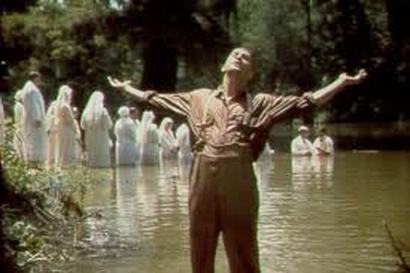 The three follow the crowd down the a river side where, one by one, a preacher baptizes them. Everett laughs at the sight, but Delmar suddenly bolts for the water and jumps in front of all in line to be saved. Expressing his excitement at his salvation, Pete takes for the water at full sprint as well. The crew is driving along in their fixed car (which I'm not sure how is fixed, now that I think about it) when they meet the legend himself. Tommy Johnson (a parody of Robert Johnson) is standing at the crossroads where he has just sold his soul to the devil to play the guitar. "What the devil give you for your soul Tommy?" Everett laughs. "Well, he taught me how to play this guitar real good." "Oh son," Delmar says. "For that, you traded your ever lovin' soul?" "Well I wasn't usin' it," Tommy replies. It is in this exchange that the men find out what the devil looks like, as Tommy describes his features. Surprisingly, he claims the devil is white and travels around with a "mean hound dog." He then tells the men he is on his way to Tishomingo where he has heard rumors a man will pay good money to sing into a can. "He'll pay you extra," Tommy says, "If'n you play real good." "Tishomingo, huh?" Everett asks thoughtfully. "How much he pay?" Now, I have to stop to make an aside here for this part. The scene jumps after this question to the radio station, but I just want to state that I would have loved to see this conversation play out further. How the hell would it have gone? "Tishomingo, huh? How much he pay? Cause it just so happens, we're a talented group of singers, recently escaped from a chain gang and I have a hit song that's sure to go over really well. If we practice in the car here for the next couple minutes or so that it will take to get there, I think we could nail it in our first try!" Anyway, the group gets their destination where they meet the next blind man of the movie, who is the owner and recorder at the station. After convincing the man they are experienced in old timey material, the men break into the film's most popular number, "Man of Constant Sorrow". Back when the movie came out and I had no idea there was a soundtrack, I rewinded my VHS tape over and over to hear this three minutes of musical mastery. Just a guitar, some bluesy verses, and some call and return backing vocals. It didn't' need anything else. A while back I learned the song on guitar and did my best to know the verses. It was one of my favorite songs to play at shows, as it still holds a lot of power for me, and the crowd always seems to get a kick out of it. I was particularly thrilled at one show a couple months back when I convinced two of my friends to take the stage with me and perform the backing vocals. It went great, and my friends kept up even though some of the verses I butchered or made up as we went along. From his booth, the blind man nods his head about and, in what appears to be a mildly possessed state, hums to himself in delight, "yesss yeeeesss...". Later on in the film, the station owner talks to an artist contractor about how "powerful" the performance was. I'd like to think the man, due to his blindness, is tapped into a different kind of head space. One that has given him an almost spiritual connection with sound and provides him with a great purpose in his life as he seeks artists from all around to broadcast their talents into the radio airways and the heavens themselves. Shortly after, the gang crosses paths with Pappy O'Daniel (based on Texas Democrat W. Lee O'Daniel) who is running a difficult re-election campaign for governor of Mississippi. 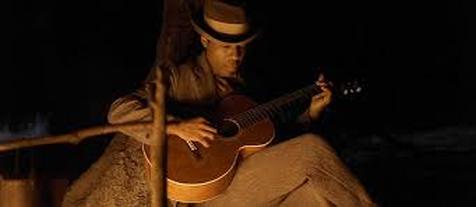 That night, Tommy Johnson shows viewers the darker side of what his exchange with Satan has done for his talent. He quietly picks out "Hard Time Killin Floor" on his guitar by the campfire, singing the tune's haunted verses: Hard time's is here An ev'rywhere you go Times are harder Than th'ever been befo' Um, hm-hm Um-hm Um, hm-hm Um, hm-hm-hm You know that people They are driftin' from do' to do' But they can't find no heaven I don't care where they go Um, hm-hm Um-uh-hm Mm-hm-hm Um, hm-hm-hm Tommy sings the song with such muted emphasis, the listener feels he is almost hearing the cry of a soul that knows its own eternal damnation. Meanwhile, the escapees discuss how they will spend their fortune when they reach the 1.2 million dollars that Everett has stowed away back home from an armored car job. The music is cut short when the men hear a police deputy over a loud speaker demanding they come out and surrender. The gang creep up and spot the enforcement unit setting fire to their nearby car, the sheriff and his hound have their backs turned to them. Tommy flees the scene, and the trio are quick to abandon their location as well. The next day the three encounter a flood of activity as they meet George Nelson who takes them on a bank robbery. When a woman calls him "baby face" the eccentric and wild Nelson becomes deflated by the remark. Later that night, Nelson solemnly announces he is going to take off. I had never noticed it before, but Everett gives Pete a quick nod as Nelson stands up. I had a sudden realization that they aimed to rob him right then and there when he turned to go. However, Nelson, in his depression, tells the three they can keep his share of the loot. The looks of astonishment on Everett and Pete's faces seem to confirm their original intentions. Nelson makes his exit, and they go on without him. Meanwhile, the radio station owner has been playing the track the gang cut in the studio under the band name, "The Soggy Bottom Boys" and the song is becoming ever more popular as Everett, Delmar, and Pete make their way further and further across Mississippi. Driving down the road in a stolen car, the men, like the crew from Ulysses's ship in the Odyssey, are drawn to rocky waters as three beautiful woman sing an entrancing song. The men are drugged and Pete is hauled off for the bounty placed on his head by the law. Everett and Delmar awake to find only a toad in Pete's cloths. Delmar believes the women have used magic on Pete to turn him into a frog and quickly scoops him up before leaving the riverside. The duo stop at a fine dining establishment (look closely and you can see a statue of Homer in the background). The two men order an expensive spread, which is over heard by yet another sight-limited character. Big Dan, played by John Goodman, is an eye patch wearing, charismatic Bible salesmen who ultimately secludes the two men, attacks them, steals their money, and squishes Pete, much to Delmar's dismay. Goodman plays the cyclops well in this role, and his career of choice, selling bibles, ties him in with the previous spiritually themed group of blind characters I descried previously. The only other addition I might add is the "The Man" himself. The sheriff that pursues the three men throughout the film, much like Poseidon, never takes off his sunglasses and the viewer never sees his eyes. The sheriff is also almost always seen in the presence of fire and claims the law is a "human institution" confirming his true identity as Tommy Johnson has previously described. He too is also in the same circle as the spiritual figures of the film. Gopher? Eventually, Everett and Delmar find their way to who Everett has really been looking for this whole time, his family. He sees his three little girls singing at a campaign rally for Homer Stokes, nemesis of Pappy O'Daniel. Everett goes to the girls after the number is concluded and his daughters tell him his wife, Penny, who is planning to merry another man, is across the street buying bottle nipples. This is a fantastic choice of line delivery from the girls on the directors part, as it reveals to Everett that his wife is shopping for a baby that isn't his. In disgust, he marches over to the store and confronts his wife who has been telling his daughters for years that he was hit by a train. It is here that Everett confronts his wife's new fiance, Walter, who is tall, skinny, and totally nerdy looking. When things become heated between Everett and Penny, the two men square off to fight. Walter, unexpectedly, ducks and dodges all of Everett's attempts before knocking him down with a very unorthodox fighting stance and a crazy combination of punches. Later, in a movie theater, Everett and Delmar sink into their seats as a police deputy enters the room. He blows a whistle and a chain gang marches into the theater and sits a few rows behind the two. It is interesting to note, the deputy in the back of the room, who is dressed similar to the sheriff and has a commanding demeanor, has eyes and a face that is not visible to the viewer, as dark lighting falls on his features. He seems very much like the minion of a greater evil. Soon, as the picture show starts up again, a hushed voice comes from behind Everett and Delmar. "Do...not...seek...the treasure." The two turn around and squint into the darkness, trying to make out the owner of the voice. It is Pete. Like the dead of Hades coming to give Ulysses advice for his journeys, he seems to have returned from the ether to warn his friends of the dangers ahead. Everett and Delmar stare dumbly. "Do...not...seek...the treasure. They're settin up an ambush. Do...not...seek...the treasure." He glances around, trying to stay unnoticed. The two men are now fully turned in their seats and Delmar leans forward, shock on his face. "We...thought...you was...a toad." Pete, confusion on his face. Delmar leans even further across the back of his chair and raises his voice. "Weee...tttthought...you was...a toad!" "DO...NOT...SEEK...THE TREASURE!" Their communication is severed when the deputy calls for silence and the men settle in to their seats. That night, Everett and Delmar break Pete out of his confines where he is being held captive. It is in this reunion that Pete tells the two he sold them out for the treasure in order to avoid being hung by the sheriff. When Pete begins to weep of his betrayal, Everett confesses that there never really was a treasure. He lied to the two because they were all chained together and he had to return home before his wife married Walter. His whole escape is aimed at the stopping of the soon to occur wedding. Pete, who only had two weeks left on his sentence and will likely die in confinement if captured again, rushes Everett in a rage. The men stumble down a hill and into the proximity of a Ku Klux Klan rally, where they spot Tommy Johnson about to be hung. This scene makes for another haunting blues dirge, sung acapella by Ralph Stanley, entitled "O Death". In the film, the Klan leader sings the song amongst burning crosses and marching members, his hands raised over all as he stands upon a wooden platform: 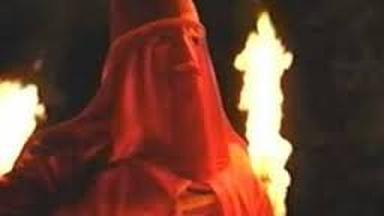 O, Death O, Death Won't you spare me over til another year Well what is this that I can't see With ice cold hands takin' hold of me Well I am death, none can excel I'll open the door to heaven or hell Whoa, death someone would pray Could you wait to call me another day O, Death O, Death Won't you spare me over til another year The trio subdue three Klan members and disguise themselves in their uniforms. They take up the march behind the group that is leading Tommy up to the noose. The men whisper for Tommy but he tells them it's to late and the Devil has come to collect his due. Nearby, one of the Klan removes his hood and sniffs at the air. It is Big Dan, his one eye searching about as he recognizes the hair treatment that Everett is forever insistent on. He unmasks the trio, whose faces are covered in dirt, making them appear to be black men themselves. The Klan leader removes his hood also, revealing himself to be Homer Stokes. Everett, Delmar, Pete, and Tommy break away and throw a rebel flag tacked to a long stake into the air directly at Big Dan. "Don't let that flag hit the ground!" Stokes shouts. Big Dan stands motionless as the projectile hurdles towards his one eye. At the last moment he catches the stake an inch from his eye ball and the collective Klan is awed by his timing. While they are distracted, Everett clips the cable of the burning cross and it falls over, landing on the Bible salesmen ending his involvement in the film. The four amigos, now reunited again, agree to go to the Stokes campaign dinner where Penny is attending. Disguised as musicians, they infiltrate the building, much like Ulysses's disguise into his own kingdom to reclaim Penelope from her wretched suitors. Pete and Delmar buy some time by breaking into an impromptu performance of yet another great song, "In The Jail House Now". When Penny continues to brush off Everett, the group starts up with "Man of Constant Sorrow" forcing Everett to run to the microphone to take lead. The crowd goes nuts at the realization that they are the Soggy Bottom Boys, while Everett, Delmar, and Pete look at each other in confusion at the unexpected reaction. They carry the tune until stopped by Stokes who recognizes them as the ones who disrupted the Klan rally. He also discovers that the three are fugitives on the run and informs the audience present. The crowd, displeased that Stokes wishes to cease the performance, becomes angered. If you watch carefully, it is at this point you will see none other than George W. Bush step up to cast the first stone at the conservative politician. What a pleasant surprise. Stokes is carried out and Pappy O'Daniel seizes the opportunity, jumps up on stage, gives pardon to the men's crimes, and adopts them into his political office. Penny agrees to take Everett back, so long as he goes to fetch her Aunt's wedding ring at their cabin. The four newly freed men go to the cabin in the morning, only to find three men digging graves in the yard. Deputies step from the trees and surround them. The sheriff and his hound dog step from the cabin. The men plead with him and tell him they have been pardoned by the governor, who broadcasted the release on the radio. "Is that so?" The man questions. "Well, we ain't got a radio." And with that, the three grave diggers come out of the holes, and begin to sing a sorrowful dirge, "Lonesome Valley", encouraging the men to prepare for their journey into the next world. Oh, you gotta walk that lonesome valley Oh, you gotta go there by yourself Nobody else can walk it for you You gotta walk, walk it by yourself You must go and stand your trials You have to stand it by yourself Nobody else can stand it for you You have to stand it by yourself All three of the main protagonist begin to pray, but it is Everett who drops to his knees and speaks openly with the Lord. He asks for forgiveness and mercy, and that Tommy and his two friends do not deserve to die this way. Finally he asks to just see his daughters again, whom he has been parted from for so many years.
A trickle of water streaks past them on the ground. Another and another. A loud crash is heard and all present turn to stare down into the forest. A massive wave pounds through the woods, flooding the area and sweeps its way across all present in the yard. "Lonesome Valley", plays on as various items float by in the water. A gramophone, a large supply of Dapper Dan cans, the sheriff's hound dog, and so on. All three men resurface and grab to the wooden door floating by. Pete and Delmar begin ranting of God's mercy, hearing their prayers and taking pity on their souls. Everett, however, is not impressed. He tells the men they are foolish and reminds them that the valley was scheduled to be flooded just as he had told them previously. The land would be renewed with electricity and other modern technologies in the near future. As he finishes his speech, he sees a cow, standing atop of a roof. Everett looks at the cow for a few seconds in wonder. The viewer almost thinks he will have a sudden realization of the past prophecy foretold to him, but then he quickly looks away to spot Tommy, who is attempting to stay atop the roll top desk where Penny's ring is stashed. The film's final scene sees Everett and Penny walking down a street town discussing their re-marriage when Penny realizes the ring Everett has brought back is not the right one. She storms off upset with Everett trying to convince her that the other ring is long gone. She again blows him off and picks up her pace, their 7 children being pulled along in a row by a string around their waists. The girls sing a song that carries the movie out and the youngest of Everett's daughters, who is last in the line, stops on the railroad tracks looking into the distance. As the rope around her waist tightens, she is pulled after the girls and we see what she has seen. The lone traveling man is moving away from town on the railroad tracks, still on his push platform, and humming along to the girl's tune. "O Brother Where Art Thou", is a tale of epic proportion for me. Every time I watch it, I marvel at how all the events that take place in the film do not even amount to two hours of screen time. Yet still, it feels jam packed with one grand scene after another, filled with interesting characters who are well scripted, incredibly deep and moving music selections, fun cross references to Homer's Odyssey, and great shots from all around Mississippi. It really is an ace of a movie. One that I will no doubt see many more times in my life with new discoveries in every viewing. This is my tribute to the Coen Brother's masterpiece. Here's to hoping they create many more grand adventures in the future, and that this particular film will be a landmark for all others seeking a great treasure in the world of cinema. Care for some gopher?  You hear't right (I felt like saying that), last night, while reading through Dr. Loren Cordain's book "The Paleo Diet Cookbook" I found the basis for an interesting snake idea. The credit for the premise goes largely to Dr. Cordain, but I have modified his recipe by taking it to several next levels in my opinion. The end result is versatile and pretty damn good no matter how you make it. And, not to forget of course, easy. If you listened in on the last Coastal Noise Podcast (#16), you may have heard us talk a little bit about the Paleo Diet, what it is, and how I've been implementing some of its principals into my own diet for a personal experiment. I'm currently looking about a few books and online sources for what the deal is with dairy products, such as grass fed butter, and flour alternatives, such as almond and coconut. But as I was reading through one of Dr. Cordain's books, I found this incredibly good looking recipe that aims to replace "energy bars" for athletes with wholesome sweet potatoes infused with almonds. I took the concept and ran with it. Not even an hour ago, I tasted my first completed batch and was very pleased. This is one I'll be keeping for the books. Here is what I did and what you'll need. The measurements for the side ingredients (the nuts mostly) are rough, but you can modify the amount based on your taste preference. Be sure to check back again soon, as I plan to make another article about my "Paleo Flour" discoveries. Ingredients: 2 sweet potatoes A handful of almonds A handful of sunflower seeds A handful of dark chocolate chips A teaspoon of ground cinnamon Coconut flakes to top with Dash of salt Preparation: Cook the potatoes. You can do this in the oven or microwave. Blend the ingredients you have chosen out of the almonds, chocolate, and sunflower seeds in a blinder or food processor to make. Cut yams in half, lengthwise after they have cooled. Sprinkle the blended ingredients over the yams and using your spoon, press or mix into the potatoes. Top with ground cinnamon and a little bit of coconut flakes if desired. Cover with plastic and shape into a roll. Place in the freezer for thirty minutes to cool. Enjoy 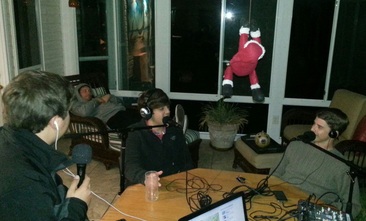 In the Coastal Noise Podcast episode #16, Daniel and Jeff talk about their recent trip to New York City. They talk about city's legendary water quality and great food they had from places such as Pies and Thighs . They also talk about some of the art they saw, including a strange indoor maze made of metal, whose construction, due to its weight, took the lives of several men to bring to its final construction. We then transitioned to a lost topic from the previous Coastal Noise Podcast episode 15, where technical difficulties lead to the loss of a section in the show where we talked about pro athletes marketing junk food to kids. Studies from Rudd Center for Food Policy and Obesity at Yale University are showing that foods that are energy dense, nutrient poor are some of the biggest products promoted by professional athletes. Worse yet, the viewers who see these advertisements for pizzas, chips, candy bars, snack foods, sodas and other sugary drinks, are primarily kids aged 12-17. Almost all endorsed beverages (93%) got %100 percent of their calories from sugar. Seeing as kids want to be pro athletes almost more than anything when they grow up, the results from the research are disturbing. Continuing on with health related topics, we discussed raising livestock and health standards in America's meat industry. We talked a little bit about the Paleo Diet (see link for Dr. Loraine Cordain's website) and what information I've been collecting on it, as well as what steps I'm taking to impalement this eating regimen in my own diet. I plan to have own two new guests soon, Anthony Lizana and Doug Morrison, who both have experience with Paleo eating and can give us more information on this trending diet. The diet of past may very well be the diet of our future. I left my seat in the middle of the show to get some water and, while I was away, discovered that Paul Walker had died. No one else at the table had heard yet. As an aside, I told the guys about the 92 year old Texas woman who kicked a burglar in the face when he tried to break into her house, not expecting to find her there. When things got hairy, the man tried to kidnap her and, while forcing on one of her shoe, she dominated his face with her heel. She plans to buy another gun for her home. "Maybe next time, I'll use it". You go granny. Other news included Jeff's pineapple is fully grown and is decked out with Christmas lights. Spoiler alert though: He's gonna eat it real soon. In spirit of the announcement, I looked up some interesting facts about pineapples during the show. Camal Petro arrived on the scene, and since he's the sports guy, I had to stop to talk about the Alabama vs. Auburn game that had just concluded an hour and a half ago. The group talked about how incredible it was and what it meant in the continuing season. Camal Petro wrote an article and photographed the recent Mississippi Gulf Coast Marathon held at Stennis Space Center yesterday for the Sun Herald. You can see the full story here. Closing discussions included Black Friday Injuries and Death counts, which have been tallied up over the last several years and Jacob Skrmetti's plans to record a home album with his fellow band mates at Mississippi State University. CNP #16 is available here. Thanks for listening everyone, and Merry December! |
Categories
All
Archives
September 2019
|

